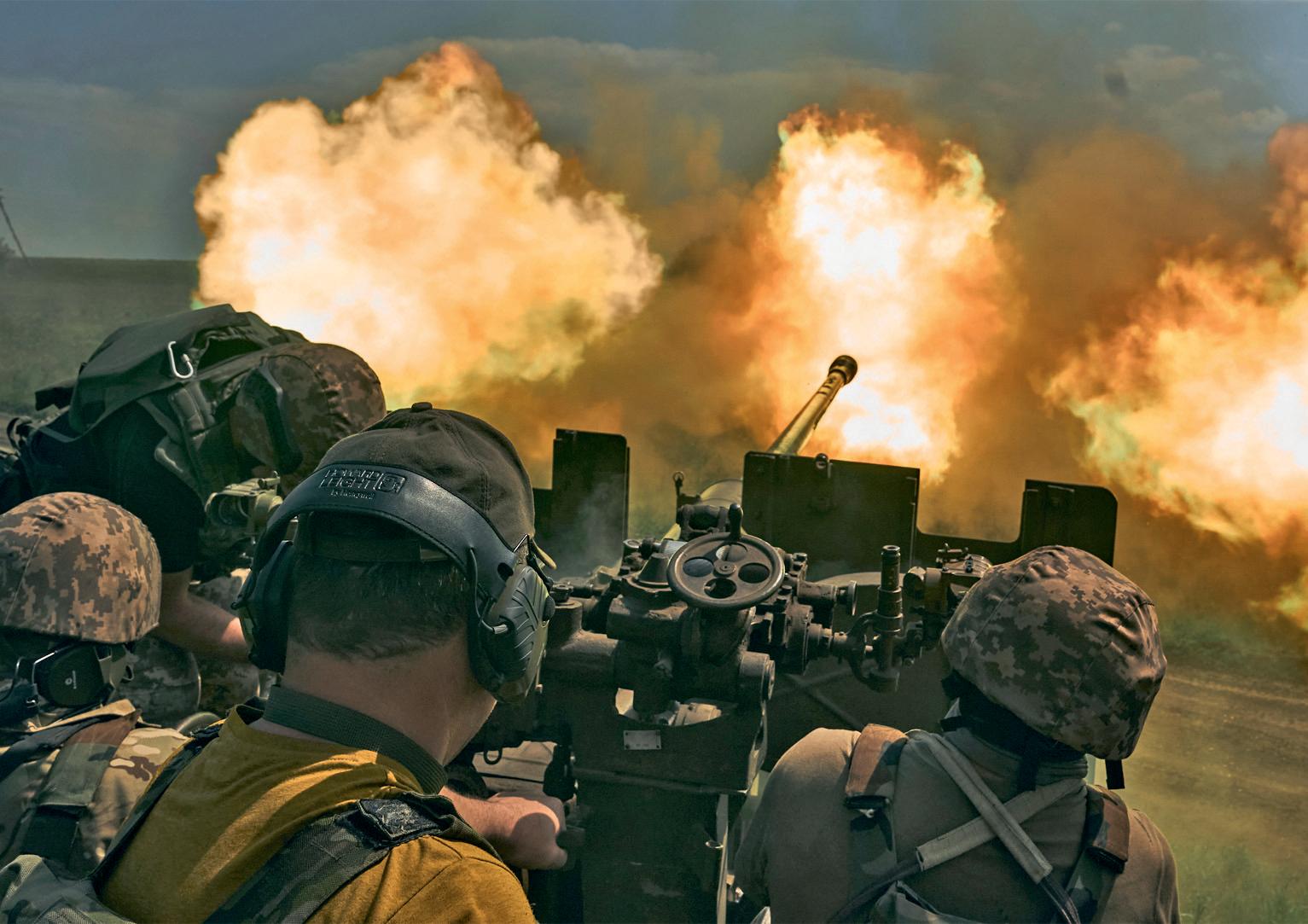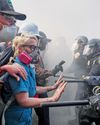Reality check: Ukraine's push on three fronts is measured in metres

The occupying forces held firm, absorbing one attack after another, often counterattacking to recover lost ground, and mounting offensives of their own.
Ukrainian assaults got mired in dense, overlapping minefields. For all the focus on the delivery of Leopards and other western tanks before the launch of the offensive on 4 June, Ukrainian armour failed to help breach the lines.
Tanks were not a solution on their own. Without air superiority and overwhelming artillery support, they were vulnerable to Russian anti-tank missiles fired from the trenches and from gunships.
The Ukrainians had mine-clearing vehicles but not enough. They were priority targets for the Russians, who learned to stack anti-tank mines on top of each other to hobble them.
"You just can't overstate the role that these Russian minefields are playing," Matt Dimmick, a retired US colonel and former national security council director for Russia, said. "The stories that we're hearing from the frontlines is Ukrainian units come up against these defences where mines in some places are every metre or every two metres ... and it requires the Ukrainians to stop, dismount and push soldiers forward to clear those minefields and create lanes."
The Ukrainians adapted their tactics, switching to platoon-sized infantry units, often at night, to pick their way through the minefields. But that has meant progress has been slow. Pathways cleared through minefields have been quickly reseeded remotely by Russian drones or artillery.
Denne historien er fra August 11, 2023-utgaven av The Guardian Weekly.
Start din 7-dagers gratis prøveperiode på Magzter GOLD for å få tilgang til tusenvis av utvalgte premiumhistorier og 9500+ magasiner og aviser.
Allerede abonnent ? Logg på
Denne historien er fra August 11, 2023-utgaven av The Guardian Weekly.
Start din 7-dagers gratis prøveperiode på Magzter GOLD for å få tilgang til tusenvis av utvalgte premiumhistorier og 9500+ magasiner og aviser.
Allerede abonnent? Logg på

In the footsteps of the fallen
Three years after the deaths of the British journalist Dom Phillips and Brazilian activist Bruno Pereira, the Guardian joined the Indigenous peoples continuing their dangerous, often gruelling, work to protect the rainforest

Don't call me cute
Small children wreak destruction in Yoshitomo Nara's paintings, exploding conventions with a rage inspired by natural disaster, the Ramones and the bomb
The 'evil twin' of climate crisis Scientists warn about ocean acidification
Researchers call for action on marine life amid fears that falling pH levels and buildup of CO2 in seas are not being taken seriously enough
Kyiv fights a 21st-century war against old tactics, but it can't do it alone
Since Donald Trump scolded Volodymyr Zelenskyy with the words “You don’t have the cards right now”, Ukraine has been keener than ever to demonstrate that it has a few up its sleeve.

Countries count cost of Trump's travel bans and taxes
When Essi Farida Geraldo, a Lomé-based architect, heard about partial restrictions on travel to the US from Togo as part of the travel bans announced by Donald Trump last Thursday, she lamented losing access to what many young Togolese consider to be a land of better opportunities.
My mother says she'll disinherit me unless I split with my partner
I have been with my partner for 14 years and we have two small children together. I have always had a complicated relationship with my mother, who was stern and a disciplinarian when I was growing up.

Chain reaction Is nuclear power back in fashion?
Spain’s recent blackout and AI datacentres’ massive energy needs are leading politicians to reach for the restart button

A refusal to be silenced
New projects honour lives and legacies of killed men

LA cleans up and takes stock after weekend of defiance
California leaders condemn 'authoritarian' president for sending in troops as protests over immigration raids spread to other cities
THE KING OF YOUTUBE
His videos are like the crazed imaginings of an 11-year-old boy. But is Jimmy Donaldson (AKA MrBeast) merely clickbait savvy - or an avant garde genius?
